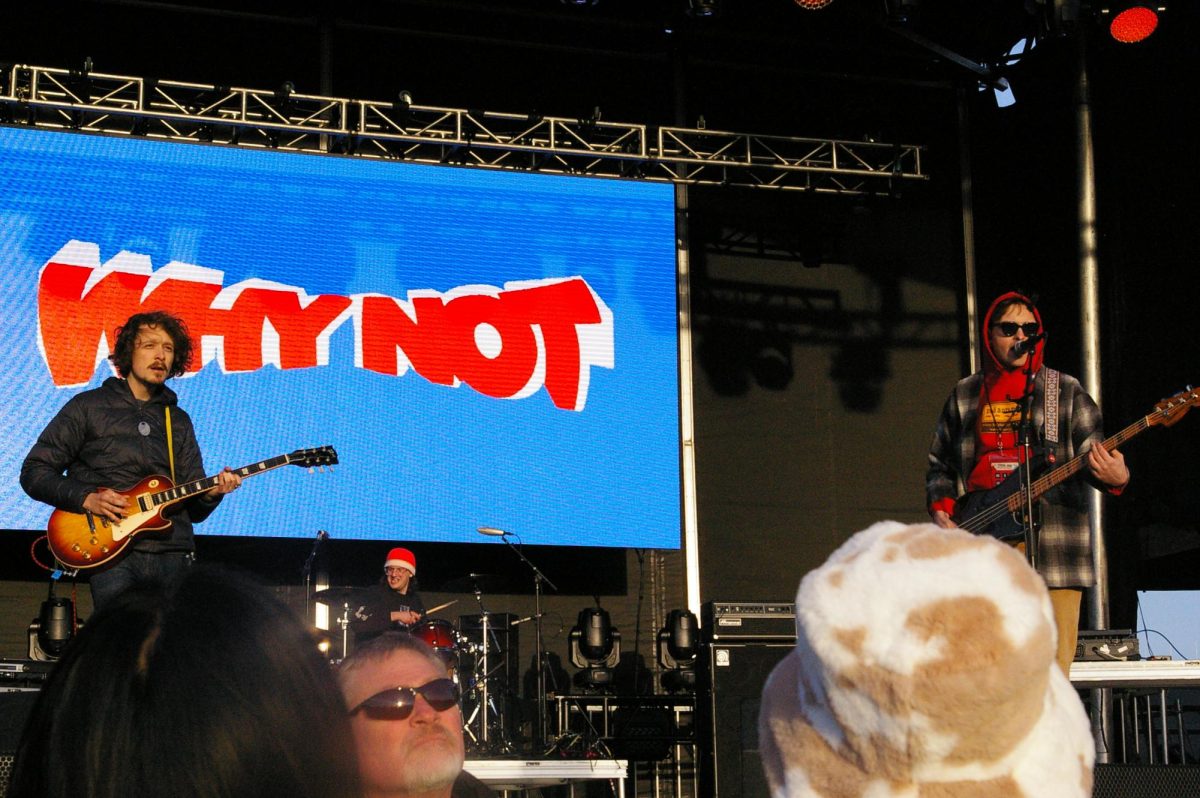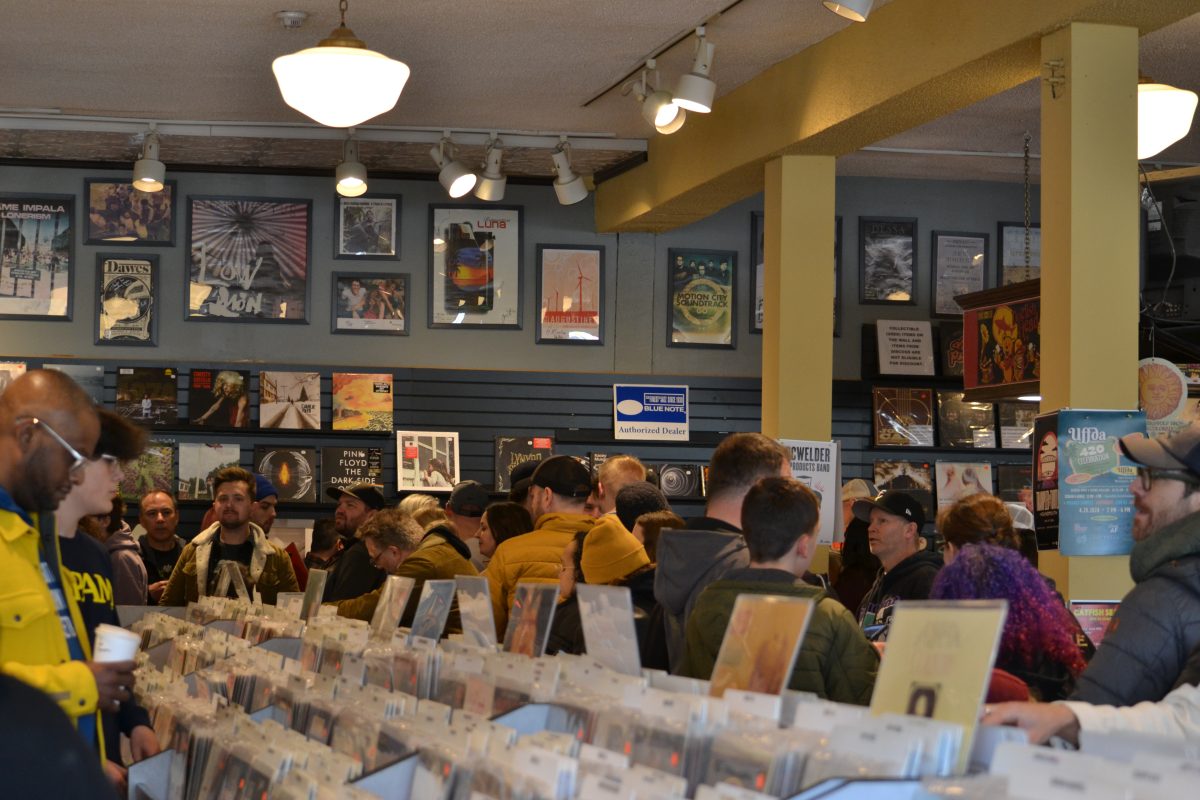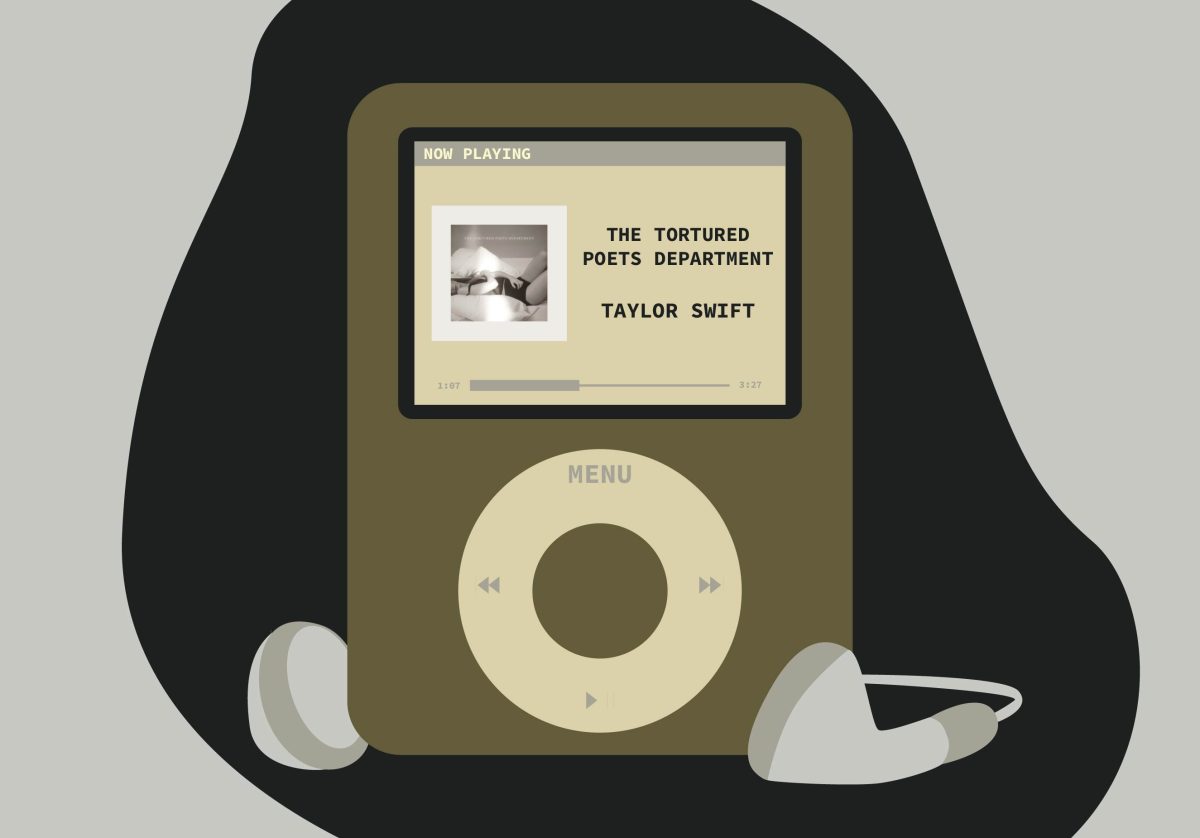Produced by the University of Minnesota’s School of Music, the concert series InterPlay has hosted a diverse lineup of world music and art for the 2002-2003 season. Performances by Latin percussionists Grupo Clave, Ragamala Music and Dance Theater, and Nexus (who earned the sobriquet “high priests of percussion” from The New York Times) shed light on international cultures and music.
Wrapping up the series this Friday is Legends of India, featuring the world-renowned duo Shivkumar Sharma and Zakir Hussain. Both artists are virtuosos in classical Indian music. After performing with one another for more than 25 years, they play with a breathtaking chemistry.
Every picture of Sharma in concert reveals his contemplative and peaceful expression. A trapezoid-shaped, delicately carved box fits snuggly in his lap and two thin wooden mallets that slightly curve at the end like a pair of skis rest gently in his hands. Every brush or graze upon one of the instrument’s 100 strings inspires a ripple of sound that Sharma eventually develops into a wave.
Sharma is virtually responsible for bringing this harp-like Kashmiri folk instrument, called the santoor, into the classical concert setting. Inspired by his father, Sharma reconfigured the santoor by increasing the number of bridges on the instrument, thereby creating a broader range of octaves and giving the santoor a more “vocal” quality. Because of Sharma’s experimentation, along with his distinctive and unparalleled skill, his name has become virtually synonymous with the santoor (his Web site is even located at www.santoor.com).
Zakir Hussain’s claim to fame is his work in bringing Indian music to an international level. His father, a collaborator with Ravi Shankar, passed down a natural sense of rhythm to Hussain on the traditional Indian set of hand drums known as the tabla. Hussain developed his inheritance into alluring improvisations. His uncanny playing led to work with such artists as George Harrison, Tito Puente and Mickey Hart of the Grateful Dead. His work with Hart on the album “Planet Drum” won a Grammy for best world music album in 1992. Hussain is also credited with important groups like Shakti and the Diga Rhythm Band, plus his own solo album “Making Music,” which is regarded as one of the most important East-West fusion records released thus far.
Co-sponsoring Legends of India is the Indian Music Society of Minnesota. Member Pavan Allalaghatta said the group has seen a steady increase of support during its 20-plus years of existence. Much of that interest comes from people of non-Indian descent, and he has confidence Sharma and Hussain will help increase the general public’s appreciation for classical Indian music. “Hussain has a knack for drawing in an audience,” said Allalaghatta, attributing it to the artist’s “virtuosity and flamboyance.”
For anyone unfamiliar with Sharma and Hussain or raga music in general, Allalaghatta recommends taking special notice of the way the artists cover “a whole spectrum of tempo.” Starting off extremely slow and timid, the music will gradually become intense and fast, eventually reaching a point Allalaghatta refers to as “full of anxiety and dramatics.”
“Legends of India,” featuring Shivkumar Sharma and Zakir Hussain, 7:30 p.m. Friday at Ted Mann Concert Hall, (612) 624-2345, $16-$23.
















